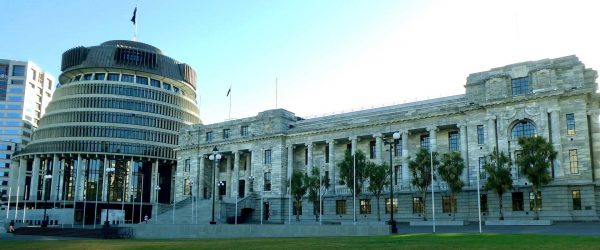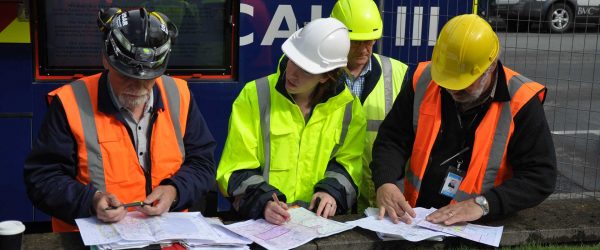Project Summary
Psychology tells us that human beings tend to follow behavioural rules to ensure that we are acting in an acceptable way. These rules are referred to as social norms, and they can be utilized to influence the way people behave. The Cultural Resilience programme worked to understand the social norms that underpin a resilient culture in New Zealand, harnessing and building on them to improve our national resilience.
The research took an an outcome-focused approach to clearly define the best tools and strategies to facilitate resilience becoming an integral part of “what we do and who we are”. Using diverse research methods including co-creation with key stakeholders and end users, the programme team investigated new and rapidly evolving technologies, and determined the ways these can be harnessed to develop social norms of resilience across diverse communities and hazard profiles. Norms were considered in the context of location, sudden shocks (e.g. earthquakes, storms, wildfires) and incremental hazards (e.g. sea-level rise).
Resources from this project
Do framing messages increase support for earthquake legislation?
Vinnell LJ, McClure J, Milfont TL. 2017. Do framing messages increase support for earthquake legislation? Disaster Prevention and Management: An International Journal. 26(1):28-40. doi:10.1108/DPM-06-2016-0127.
The impact of the Kaikōura earthquake on risk-related behaviour, perceptions, and social norm messages
Vinnell LJ, Milfont TL, McClure J. 2019. The impact of the Kaikōura earthquake on risk-related behaviour, perceptions, and social norm messages. Australasian Journal of Disaster…
Do social norms affect support for earthquake-strengthening legislation? Comparing the effects of descriptive and injunctive norms.
Vinnell LJ, Milfont TL, McClure J. 2019. Do social norms affect support for earthquake-strengthening legislation? Comparing the effects of descriptive and injunctive norms. Environment and…
Defining Extreme Wildfire Events: Difficulties, Challenges, and Impacts.
Tedim F, Leone V, Amraoui M, Bouillon C, Coughlan MR, Delogu GM, Fernandes PM, Ferreira C, McCaffrey S, McGee TK, et al. 2018. Defining extreme…
Sustaining a Transformative Disaster Risk Reduction Strategy: Grandmothers’ Telling and Singing Tsunami Stories for over 100 Years Saving Lives on Simeulue Island.
Sutton SA, Paton D, Buergelt P, Sagala S, Meilianda E. 2020. Sustaining a transformative disaster risk reduction strategy: grandmothers’ telling and singing tsunami stories for…
Factors affecting the acceptance of information systems supporting emergency operations centres.
Prasanna R, Huggins TJ. 2016. Factors affecting the acceptance of information systems supporting emergency operations centres. Computers in Human Behavior. 57:168-181. doi:10.1016/j.chb.2015.12.013.
Risk, Transformation and Adaptation: Ideas for Reframing Approaches to Disaster Risk Reduction
Paton D, Buergelt P. 2019. Risk, transformation and adaptation: ideas for reframing approaches to disaster risk reduction. International Journal of Environmental Research and Public Health.…
Social–Psychological Perspectives on Preparedness Theory and Practice: Facilitating Resilience
Paton D. 2020. Social–psychological perspectives on preparedness theory and practice: facilitating resilience. In: Yokomatsu M, Hochrainer-Stigler S, editors. Disaster risk reduction and resilience. Singapore: Springer…
Facilitating Social-Environmental Adaptation to Environmental Hazards: Towards a Universal Theory.
Paton D, Buergelt P. 2017. Facilitating social-environmental adaptation to environmental hazards: towards a universal theory. In: Daniels JA, editor. Advances in environmental research. Volume 60.…
Residents’ Reactions to Earthquake Early Warnings in Japan
Nakayachi K, Becker JS, Potter SH, Dixon M. 2019. Residents’ reactions to earthquake early warnings in Japan. Risk Analysis. 39(8):1723-1740. doi:10.1111/risa.13306.
Reactions to earthquake hazard: strengthening commercial buildings and voluntary earthquake safety checks on houses in Wellington, New Zealand.
McRae C, McClure J, Henrich L, Leah C, Charleson A. 2018. Reactions to earthquake hazard: strengthening commercial buildings and voluntary earthquake safety checks on houses…
Fatalism, causal reasoning and natural hazards.
McClure J. 2017. Fatalism, causal reasoning, and natural hazards. In. Oxford research encyclopedias. Natural hazard science. Oxford (GB): Oxford University Press. https://doi.org/10.1093/acrefore/9780199389407.013.39.














